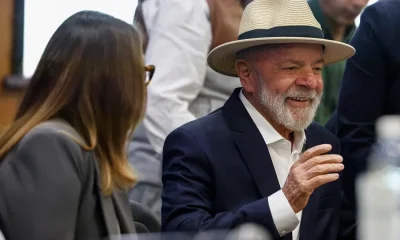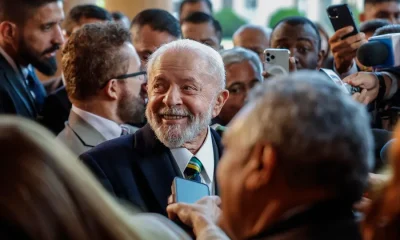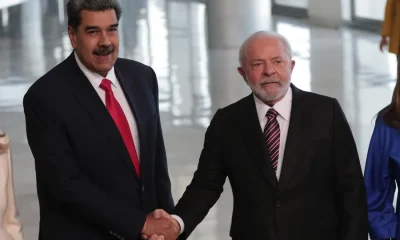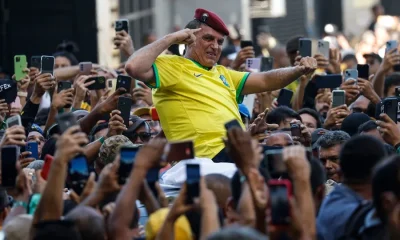International
Tough choices as Brazil’s Lula gets down to business
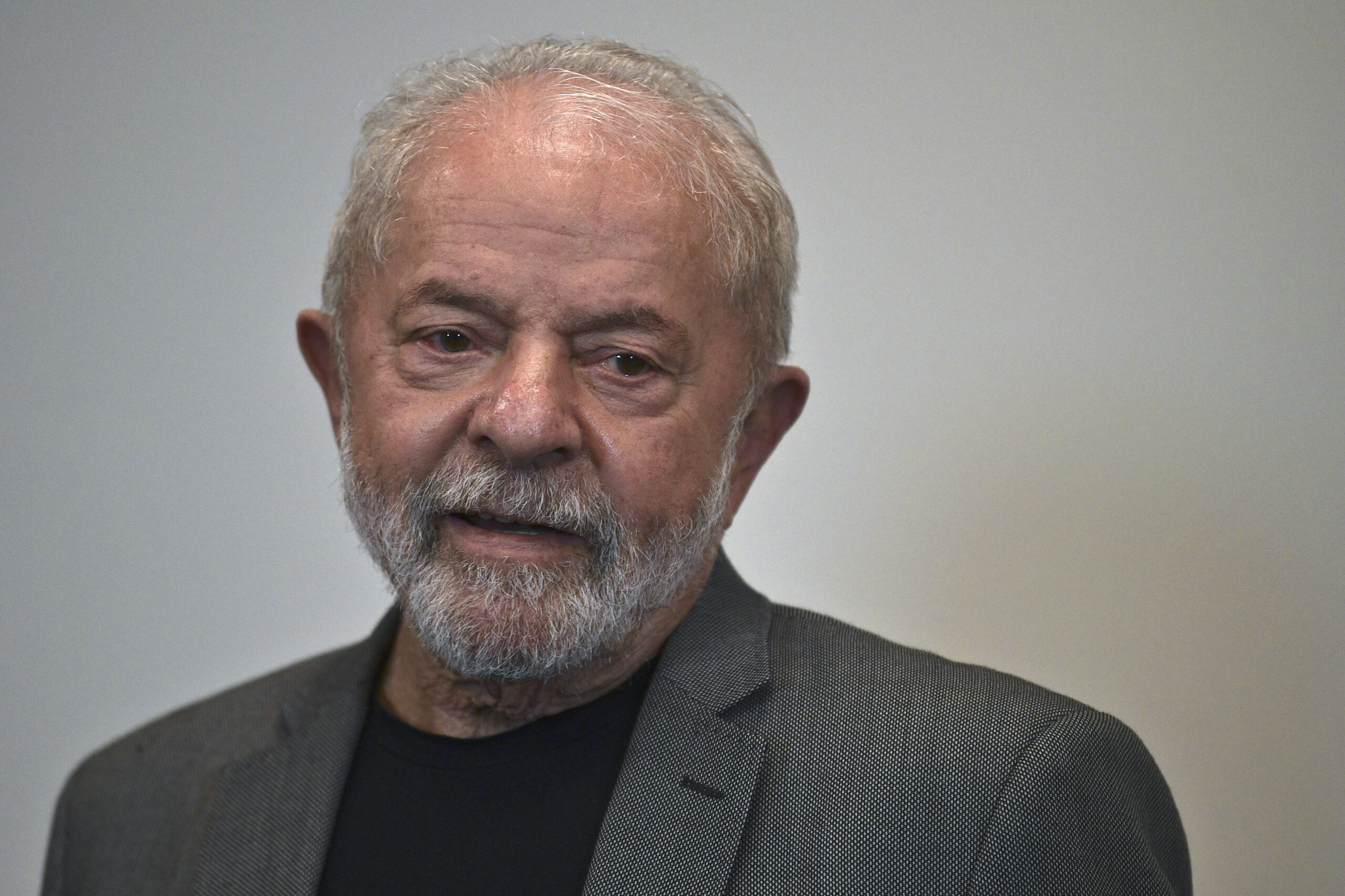
| By AFP | Marcelo Silva De Sousa
Fresh off a celebratory beach holiday, Brazilian president-elect Luiz Inacio Lula da Silva got down to uglier business Monday: figuring out how to govern with a hostile Congress, nasty budget crunch and impossible-looking to-do list.
The political horse-trading of the transition period now starts in earnest for the veteran leftist, who will be sworn in for a third term on January 1, facing a far tougher outlook than the commodities-fueled boom he presided over in the 2000s.
Lula, 77, celebrated his narrow win over far-right incumbent Jair Bolsonaro in the October 30 runoff election by escaping last week to the sun-drenched coast of Bahia in northeastern Brazil.
He joked he needed a belated honeymoon with his first-lady-to-be, Rosangela “Janja” da Silva, whom the twice-widowed ex-metalworker married in May.
His other honeymoon — the political one — could be short, analysts say.
Lula is meeting Monday with advisers in Sao Paulo. On Tuesday, he will travel to the capital, Brasilia, to finish assembling his 50-member transition team and start negotiating with members of Congress, two allies told AFP.
He faces a battle to get bills passed in a legislature where conservatives scored big gains in October’s elections.
Lula’s coalition has around 123 votes in the 513-seat Chamber of Deputies, and 27 in the 81-seat Senate, meaning he will have to strike alliances to get anything done — and even just survive, given the threat of impeachment in Brazil, where two presidents have been impeached in the past 30 years.
Into the shark tank
Lula is expected to meet in Brasilia with lower-house speaker Arthur Lira, a key Bolsonaro ally from the loose coalition of parties known as the “Centrao,” a group known for striking alliances with whoever is in power — in exchange for feeding on the federal pork barrel.
Lula will be under pressure from the Centrao not to oppose the so-called “secret budget”: 19.4 billion reais ($3.8 billion) in basically unmonitored federal funding that Bolsonaro agreed to allocate to select lawmakers to boost support for his reelection bid.
Meanwhile, money will be tight for Lula’s campaign promises, including increasing the minimum wage and maintaining a beefed-up 600-reais-per-month welfare program, “Auxilio Brasil.”
Bolsonaro, who introduced the program, did not allocate sufficient funding to continue it in the 2023 budget.
“We can’t start 2023 without the ‘Auxilio’ and a real increase in the minimum wage,” the leader of Lula’s Workers’ Party, Gleisi Hoffmann, said Friday.
“That’s our contract with the Brazilian people.”
Facing the impossible math of funding such pledges without breaking the government spending cap, Lula’s allies are exploring their options, including passing a constitutional amendment allowing exceptional spending next year.
But they are racing the clock: it would have to be approved by December 15.
Markets watching
Lula, who ran on vague promises of restoring Latin America’s biggest economy to the golden times of his first two terms (2003-2010), faces a bleaker picture this time around.
“The challenge is… how to balance fiscal responsibility with a highly anticipated social agenda,” in the face of high inflation and a possible global recession, said political scientist Leandro Consentino of Insper university.
Markets are watching closely — especially his pick for finance minister.
Lula is expected to split Bolsonaro’s economy “super-ministry” into three portfolios: finance, planning, and trade and industry.
Analysts predict a political choice for finance minister, a technocrat for planning and a business executive for trade.
Names floated for the finance job include Lula’s former education minister Fernando Haddad and his campaign coordinator, Aloizio Mercadante.
COP27 stage
Other closely watched portfolios are the environment and a promised new ministry of Indigenous affairs — both sore spots under Bolsonaro, who presided over a surge of destruction in the Amazon rainforest.
The former job could go to Lula’s one-time environment minister Marina Silva, credited with curbing deforestation in the 2000s.
In a key gesture, the president-elect will make his return to the international stage at the COP27 UN climate summit in Egypt, where he will arrive on November 14, advisers said.
Silva, who will travel with him, told newspaper Folha de Sao Paulo: “The climate issue is now a strategic priority at the highest level.”
International
Claudia Sheinbaum: Operation Against ‘El Mencho’ Was Based on Pending Arrest Warrants

Mexico’s President Claudia Sheinbaum on Wednesday rejected claims that the military operation that resulted in the death of Nemesio Oseguera Cervantes, known as “El Mencho,” leader of the Jalisco New Generation Cartel (CJNG), was carried out under pressure from the United States government.
Sheinbaum explained that the deployment of federal forces was aimed at executing outstanding arrest warrants against Oseguera Cervantes, who was considered one of the most wanted criminals in both Mexico and the United States.
“That was not the objective (to ease pressure from the United States). It is very important, and I want to repeat it. This individual had an arrest warrant, or several,” Sheinbaum said, referring to the operation conducted on February 22.
According to the president, the initial goal was to capture Oseguera Cervantes, but military forces responded after coming under attack during the intervention.
“The operation was to detain him. The problem is that they were attacked — the Secretariat of National Defense — and they responded at that moment,” she said.
The president insisted that the action was not carried out in response to external demands, although she acknowledged intelligence cooperation with the United States.
“It was not done in any way because of pressure from the United States, not at all. Of course, there was intelligence information from the United States that was used specifically,” she concluded.
International
Spain Denies Any Agreement to Cooperate with U.S. Military in Iran Operations
International
White House Says Spain Agrees to Cooperate with U.S. Military After Trump Threatens Trade Embargo

White House Press Secretary Karoline Leavitt said Wednesday that Spain has agreed “in recent hours” to cooperate with the U.S. military, following President Donald Trump’s threat to impose a trade embargo on Madrid.
Trump had warned of potential commercial measures after Spain reportedly refused to allow the Pentagon to use facilities at Spanish military bases for operations related to Iran.
“With respect to Spain, I think you heard the president’s message yesterday loud and clear, and I understand that in recent hours they have agreed to cooperate with the United States military,” Leavitt said during a press briefing.
She added that the U.S. military is currently coordinating with its counterparts in Spain. However, the president expects broader support.
“The president expects that all of Europe, all of our European allies, of course, will cooperate in this important mission — not only for the United States, but also for Europe,” Leavitt said.
Her remarks came in response to questions about Spain’s position and its role as a U.S. ally amid rising tensions surrounding operations involving Iran.
-

 International4 days ago
International4 days agoIran Reports 201 Dead, 747 Injured After U.S. and Israeli Strikes
-

 International3 days ago
International3 days agoBrazil’s Supreme Court Rejects Bolsonaro’s Bid for House Arrest
-

 International3 days ago
International3 days agoAnti-ICE Billboard Campaign Targets Immigration Spending in 31 U.S. Cities
-

 International2 days ago
International2 days agoSpain’s Prime Minister to Address Nation Amid Trump’s Trade Threats
-

 International4 days ago
International4 days agoPope Leo XIV Urges End to ‘Spiral of Violence’ in Middle East
-

 Sin categoría5 days ago
Sin categoría5 days agoTrump: ‘We Think It’s True’ Amid Claims Iran’s Supreme Leader Was Killed
-

 International5 days ago
International5 days agoSecurity Council to Hold Emergency Meeting on Middle East Crisis
-

 International3 days ago
International3 days agoTrump Warns of ‘Major Wave’ of Attacks as Iran Conflict Escalates
-

 International21 hours ago
International21 hours agoWhite House Says Spain Agrees to Cooperate with U.S. Military After Trump Threatens Trade Embargo
-

 International3 days ago
International3 days agoMexico Calls for Immediate Probe After National Dies in ICE Custody
-

 International2 days ago
International2 days agoNew York Announces First 2,000 Seats in Universal 2-K Program
-

 International21 hours ago
International21 hours agoSpain Denies Any Agreement to Cooperate with U.S. Military in Iran Operations
-

 Central America21 hours ago
Central America21 hours agoNicaragua Held Responsible for Harassment of Opposition Prosecutor and His Family
-

 International3 days ago
International3 days agoBolivia Orders Three Investigations Into Deadly Military Plane Crash
-

 International2 days ago
International2 days agoWarner Bros. Developing First ‘Game of Thrones’ Movie With ‘Andor’ Writer
-

 Central America3 days ago
Central America3 days agoPanama Canal Monitoring Trade as Middle East Conflict Disrupts Shipping
-

 Central America2 days ago
Central America2 days agoGuatemala’s Attorney General Fails in Bid for Top Court Seat Amid Corruption Allegations
-

 International20 hours ago
International20 hours agoClaudia Sheinbaum: Operation Against ‘El Mencho’ Was Based on Pending Arrest Warrants































